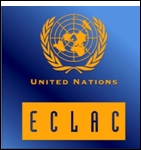
Regional workshop addresses planning for resilience in the Caribbean

Housing, infrastructure and development planning experts from across the Caribbean have come together to promote a coherent approach to resilience building, considering the specific context of informal settlements in the subregion.
The Economic Commission for Latin America and the Caribbean (ECLAC) subregional headquarters for the Caribbean, together with the United Nations Human Settlements Programme (UN Habitat), organized the policy dialogue workshop focusing on the implementation of SDG 11 in the Caribbean, “Make cities and human settlements inclusive, safe, resilient and sustainable”, on 11 June 2019.
With over 70 per cent of its populations living in urban areas, the Caribbean population is today increasingly urban. As this population continues to grow, the majority come under a diversity of economic, social, cultural and environmental constraints heightened by climate change impacts. In many Caribbean countries, urban growth has frequently been characterised by the informal nature of human settlements, a demonstration of the inability of urban policies to face urbanization demands. This recent urbanization process has been associated with greater poverty, expansion of informal settlements and inadequate housing, collaborating to widen the urban divide.
Held at the Trinidad Hilton and Conference Centre, the joint ECLAC – UN-Habitat policy dialogue workshop was the key milestone for countries to agree on the priorities and major issues facing local and central governments in the Caribbean relating to resilience and the upgrading of informal settlements within the context of SDG 11…[+]








